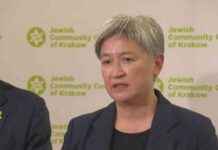Coalition’s Support for Fixed Four-Year Terms in Doubt: Albanese’s Skepticism
Earlier today, Anthony Albanese made a bold statement, suggesting that Australia should consider transitioning to a system where governments serve a fixed four-year term. However, this proposed change would require the backing of voters through a referendum, a task that has proven challenging in the past.
Albanese, a prominent figure in Australian politics, has been vocal in his support for implementing four-year terms in federal elections. He expressed skepticism about the Coalition’s commitment to this idea, citing historical precedents where promises of support for referendums have fallen through.
History of Referendums
Albanese pointed to past instances, such as the 1980s during the Hawke government, where similar proposals were met with initial support but ultimately faced opposition. He emphasized the importance of bipartisan cooperation, highlighting that no referendum in Australian history has succeeded without the backing of both the government and the opposition.
Challenges and Opposition
Despite efforts to push for change, a previous referendum aimed at establishing four-year fixed terms for the federal parliament was decisively rejected in 1988. The proposal received less than a third of the vote, with ‘No’ emerging victorious on a national scale and in every state and territory. This outcome underscores the significant hurdles that any future attempts to alter the electoral system may face.
Albanese’s Vision for the Future
During a recent event in Cairns that had the semblance of a campaign stop, Albanese discussed pressing issues like the cost-of-living crisis, particularly focusing on energy costs and housing affordability. He framed the upcoming election in 2025 as a pivotal moment for his government’s commitment to supporting the people and addressing economic challenges while also prioritizing national progress.
In light of these developments, the question arises: Should Australia transition to four-year fixed terms for federal elections? As debates continue and political landscapes evolve, the path towards potential electoral reform remains uncertain.
As we navigate the complexities of governance and electoral processes, it’s crucial to reflect on the dynamics shaping our democratic system. The intersection of political ideologies, public opinion, and constitutional frameworks underscores the intricate nature of decision-making in a democratic society. Ultimately, the quest for electoral reform serves as a testament to the ongoing evolution of our democratic values and aspirations.

















